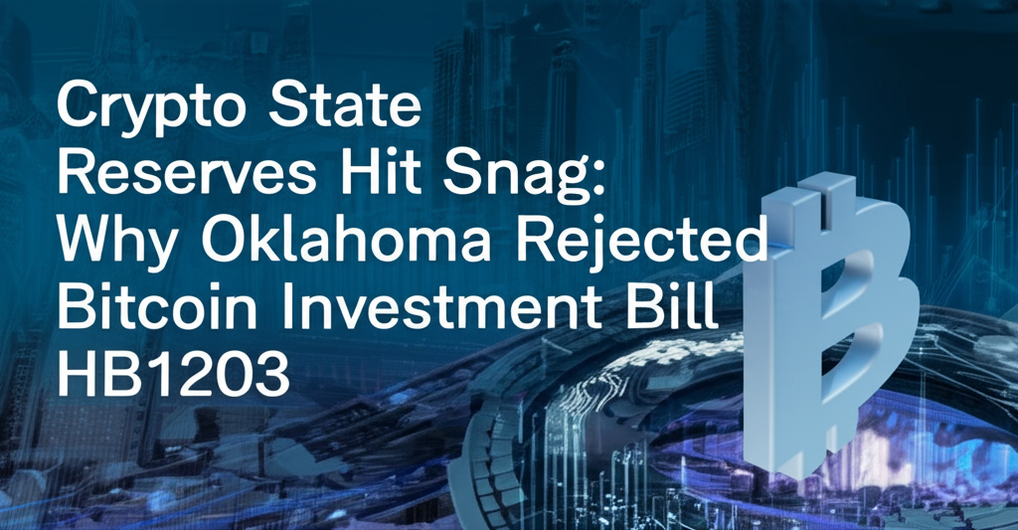Crypto State Reserves Hit Snag: Why Oklahoma Rejected Bitcoin Investment Bill HB1203

Oklahoma’s ambitions to integrate Bitcoin into its state treasury have stalled. Proposed legislation, HB1203, aimed at creating a state-managed Bitcoin reserve, was narrowly defeated in a key Senate committee vote, halting the state’s exploration of crypto assets for its funds.
The Strategic Bitcoin Reserve Act sought to empower the State Treasurer to allocate up to 10% from major state funds—including the General Fund and Revenue Stabilization Fund—into BTC and other significant digital assets with market capitalizations exceeding $500 billion. This included provisions for secure holding via regulated custodians and exploring what is staking in crypto?.
The bill also outlined pathways for integrating crypto investment choices into state employee retirement plans. It mandated that any taxes or fees collected in Bitcoin must be converted to US dollars before entering state coffers, ensuring immediate liquidation into fiat currency.
 Bitcoin Laws: Your source for Bitcoin-related legal information.](https://sportsixth.com/wp-content/uploads/2025/04/source-_@Bitcoin-_Lawshttps-x.com-Bitcoin5FLaws.jpg)
Introduced in January by Representative Cody Maynard, who championed Bitcoin as a safeguard against monetary inflation and government overreach, the bill initially saw strong bipartisan support. It successfully cleared the Government Oversight Committee with a 12–2 vote in February and passed the full House with a decisive 77–15 vote in March.
Maynard had previously highlighted Bitcoin’s decentralized nature, arguing it offered protection from government monetary policies and served as a fundamental store of value for promoting financial sovereignty and sound money principles.
Despite earlier momentum, HB1203 faced decisive opposition in the Senate Revenue and Taxation Committee on April 14. A tight 6-5 vote, with dissent coming from three Republican and three Democrat senators, ultimately halted the bill’s progress toward becoming law.
This rejection effectively removes Oklahoma from the group of states actively pursuing state-level crypto investment frameworks. Arizona, New Hampshire, and Texas remain prominent players exploring similar digital asset strategies. The legislation, which aimed for a November 1 effective date, is now defunct.
 Bitcoin laws on X. Source: @Bitcoin_Laws](https://sportsixth.com/wp-content/uploads/2025/04/Source-_@Bitcoin-_Lawshttps-x.com-Bitcoin5FLaws.png)
The failure underscores the ongoing debate and regulatory hurdles facing the adoption of digital currencies by government bodies, despite growing interest in their potential financial benefits. The inherent volatility and custodial complexities associated with crypto assets likely contributed to the committee’s reservations, highlighting the importance of secure management, perhaps involving the best crypto wallet solutions if such plans were ever revisited.
